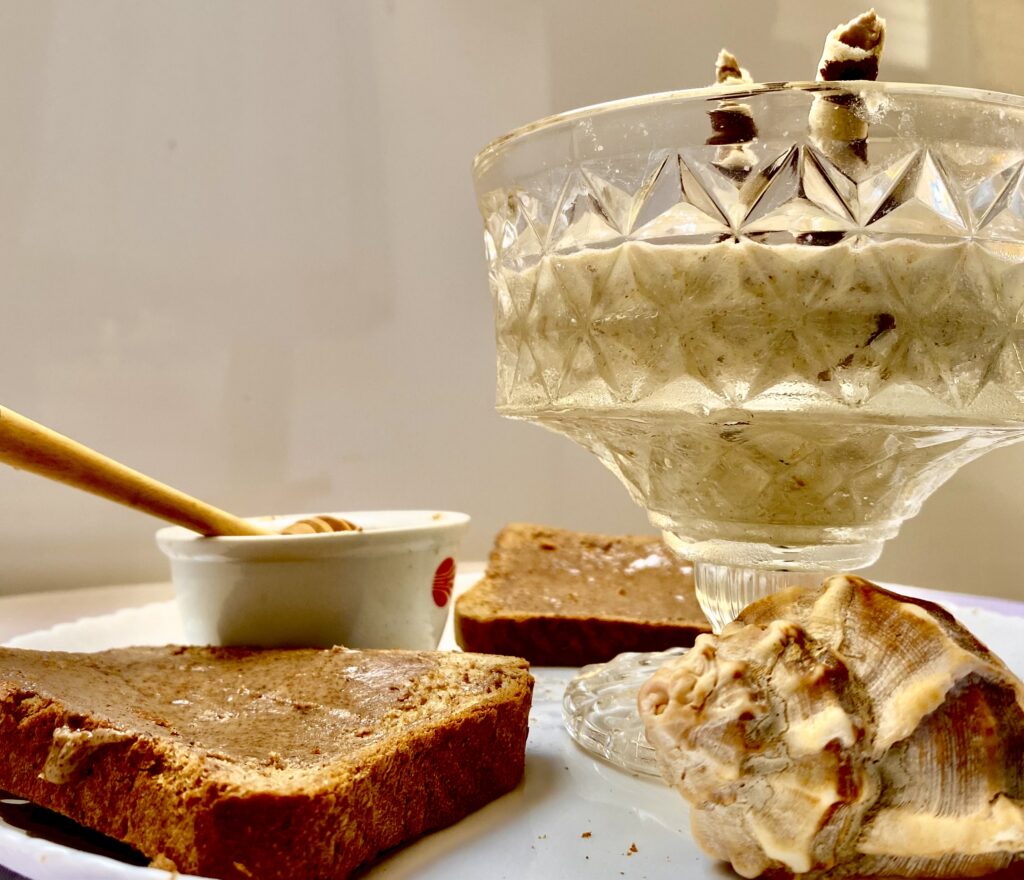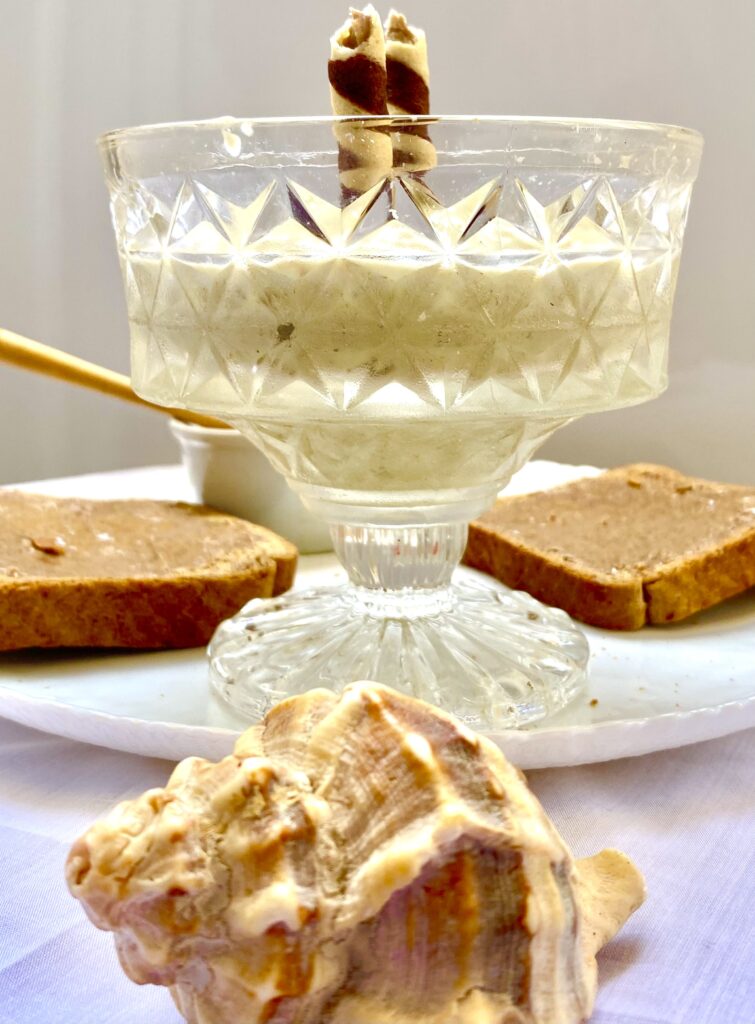Almond Butter Benefits and Nutrition Facts
Benefits of Almond Butter
Rich in Nutrients: Almond butter is packed with essential nutrients, including Vitamin E, magnesium, and healthy monounsaturated fats. These nutrients support heart health, brain function, and skin health.
Antioxidant Properties: High in antioxidants, particularly Vitamin E, almond butter helps combat oxidative stress, which can reduce the risk of chronic diseases.
Protein Power: With about 7 grams of protein per serving, almond butter is an excellent source of plant-based protein, aiding in muscle repair and growth.
Blood Sugar Regulation: Almond butter has a lower glycemic index compared to peanut butter, which can help in managing blood sugar levels, making it a good choice for diabetics.
Weight Management: The healthy fats and protein content in almond butter can help keep you feeling full and satisfied, potentially aiding in weight management.
Nutrition Facts of Almond Butter
Calories: 190 per 2 tablespoons
Protein: 7 grams
Fat: 18 grams (mostly monounsaturated)
Carbohydrates: 6 grams
Fiber: 3.5 grams
Sugar: 1 gram (choose sugar-free almond butter for even lower sugar content)
Almond Butter Ice Cream Recipe Without Sugar


Creamy Banana Avocado Delight
Ingredients:
- 3 ripe bananas, sliced and frozen
- 1 ripe avocado, peeled and pitted
- 1/2 cup almond milk (adjust for desired consistency)
- 2 tablespoons almond butter (sugar-free)
- Stevia sweetener (to taste)
Instructions:
- Prepare the Ingredients:
- Slice and freeze the bananas ahead of time.
- Peel and pit the avocado.
- Blend Ingredients:
- In a blender, combine the frozen banana slices and avocado.
- Add almond milk, almond butter, and stevia sweetener according to your taste preferences.
- Blend Until Smooth:
- Blend all ingredients until smooth and creamy. You may need to stop and scrape down the sides of the blender to ensure everything mixes evenly.
- Adjust Consistency:
- If the mixture is too thick, add a bit more almond milk gradually until you reach your desired creamy consistency.
- Serve or Chill:
- Serve immediately for a soft-serve consistency, or transfer the mixture into a container and freeze for at least 2 hours for a firmer texture.
- Enjoy Your Creamy Creation:
- Scoop into bowls or cups and enjoy your deliciously creamy banana avocado treat!
Peanut Butter Benefits and Nutrition Facts
Benefits of Peanut Butter
Affordable and Accessible: Peanut butter is generally more affordable than almond butter, making it accessible for most people.
Good Source of Protein: Peanut butter offers about 8 grams of protein per serving, which is beneficial for muscle building and repair.
Rich in Healthy Fats: Contains healthy monounsaturated and polyunsaturated fats that support heart health.
Nutrient-Dense: Provides essential nutrients such as Vitamin E, magnesium, and niacin, which contribute to overall health.
Energy Boosting: The combination of protein, fats, and carbs makes peanut butter an excellent energy booster, ideal for athletes and active individuals.
Nutrition Facts of Peanut Butter
Calories: 190 per 2 tablespoons
Protein: 8 grams
Fat: 16 grams (mostly monounsaturated and polyunsaturated)
Carbohydrates: 7 grams
Fiber: 2 grams
Sugar: 3 grams (choose sugar-free peanut butter for lower sugar content)
Protein-Packed Peanut Butter Shake Recipe
Ingredients:
1 cup almond milk (or any milk of choice)
1 scoop protein powder (vanilla or chocolate)
2 tablespoons sugar-free peanut butter
1 banana
Ice cubes (optional)
Instructions:
Combine all ingredients in a blender.
Blend until smooth and creamy.
Add ice cubes if desired for a thicker shake.
Pour into a glass and enjoy!
Comparing Almond Butter and Peanut Butter
Cost Efficiency
Peanut Butter: Generally cheaper and more accessible, making it an economical choice for budget-conscious consumers. Sugar-free peanut butter options are also widely available.
Almond Butter: Typically more expensive due to the higher cost of almonds, but it offers more unique health benefits. Sugar-free almond butter is a healthy choice with fewer additives.
Nutritional Benefits
Peanut Butter: Slightly higher in protein and provides a good balance of healthy fats, making it a great energy source. It’s also more affordable. Sugar-free peanut butter can help reduce added sugar intake.
Almond Butter: Richer in essential nutrients like Vitamin E and magnesium, has a lower glycemic index, and contains more fiber, which can aid in digestion and blood sugar management. Sugar-free almond butter is excellent for those looking to minimize sugar consumption.
Health Considerations
Peanut Butter: May contain more added sugars and hydrogenated oils, especially in non-natural varieties. It is also a common allergen. Sugar-free peanut butter options are a healthier choice.
Almond Butter: Often has fewer additives and a cleaner ingredient profile, making it a healthier option. It is less likely to cause allergies compared to peanut butter. Sugar-free almond butter provides the same benefits with even less sugar.
Conclusion
Both almond butter and peanut butter have their unique advantages. If budget is a primary concern, peanut butter is the better choice. However, for those prioritizing nutrient density and overall health benefits, almond butter is worth the extra investment. Opting for sugar-free almond butter and sugar-free peanut butter can enhance their health benefits by reducing sugar intake. Whether you’re looking for an almond butter recipe or a peanut butter recipe, incorporating these nutritious, sugar-free options into your diet can support your health and wellness goals.